Purdue IT
Artificial Intelligence at Purdue University

Resource Center
Generative AI
Generative AI (GenAI) has risen in prominence with the popularity of ChatGPT, developed by OpenAI. However, the availability of GenAI applications continues to grow. ChatGPT and others utilize a “large language model” (LLM), which relies on the vast collection of text to develop an understanding of the patterns and structure of human language. These foundation models are, in essence, prediction algorithms. In the case of ChatGPT and other LLMs, they predict patterns and sequences of words and generate language that makes sense in response to a question, called a “prompt.”
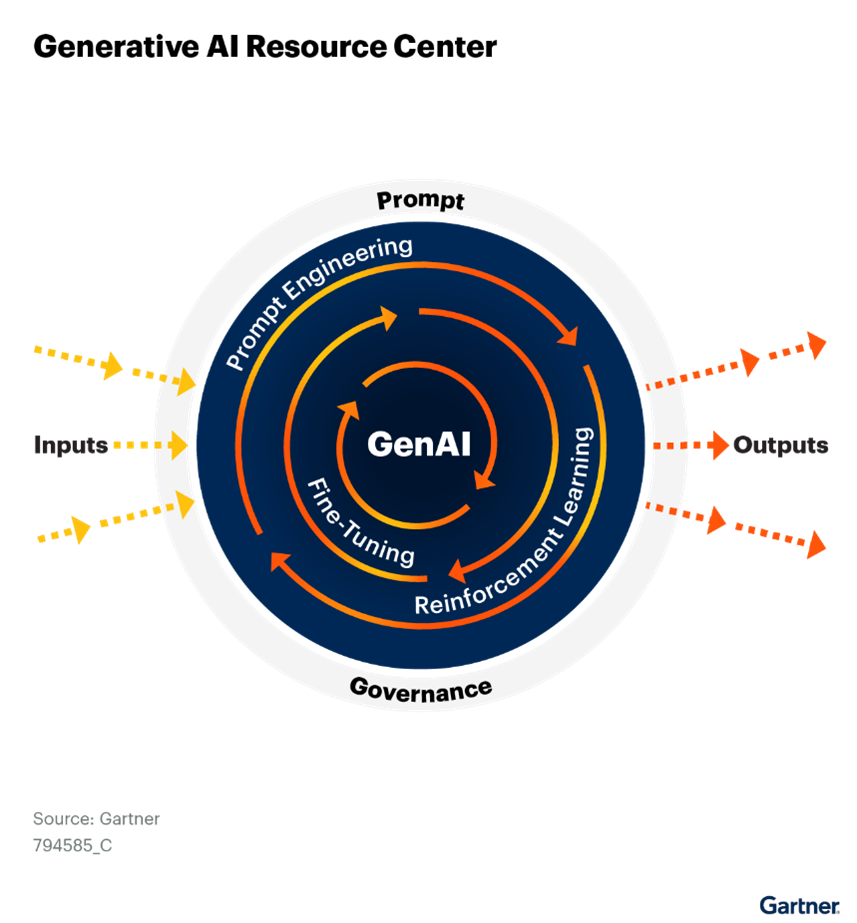
However, this generation is not limited to text. GenAI can also create code, images, video or audio. According to Gartner, the more reinforcement learning with human feedback (RLHF) is applied during model training, the higher quality the generated responses are (see Figure 1).
GPT-4
Microsoft Copilot with Data Protection
Purdue users have access to Microsoft Copilot with Data Protection, which was previously branded as Bing Chat Enterprise (BCE). Unlike Copilot for Microsoft 365, Copilot with Data Protection does not access Purdue Microsoft 365 files and data. While it is built on the same tools and data as ChatGPT, Copilot with Data Protection has access to current Internet data.
Chatbot
Ivy.ai
The Ivy.ai chatbot uses AI learning to answer IT-related user questions based on content found on Purdue Information Technology supported webpages. Users can access the chatbot, also known as the Purdue Virtual Assistant, by clicking on the speech bubbles found in the lower right corner of the Purdue IT website. Simply type a full question or a few keywords, and Ivy will answer based on information on the Purdue website and TDX knowledgebase. Currently, Ivy does not have the ability to connect users with a live agent through chat, but it can give the appropriate phone number to call or help submit a ticket to the IT Service Desk.
Ivy uses artificial intelligence to pull information from Purdue IT websites and has the ability to learn over time. If users get an incorrect, unhelpful or bizarre response, they should click the thumbs down button. Likewise, if they receive helpful information, they should give it a thumbs up. Both actions help the bot to improve its responses.
RESEARCH COMPUtING
Gilbreth
Gilbreth is a community cluster optimized for communities running GPU intensive applications such as machine learning and AI.
Recognizing the need for faster and larger storage capacity in emerging areas of science, Purdue’s Rosen Center for Advanced Computing (RCAC) has continued to invest in AI capacity in Gilbreth. Expansions in 2023 and 2024 have increased GPU capacity more than two-fold, and a 2024 expansion increased both the I/O performance and capacity for Gilbreth. The new I/O system uses DDN’s Exascaler 400NVX2-S appliance with a total capacity of 4.56 PB (4.3 PB usable), and has been benchmarked with performance increase from 25% to 116%
Related Links
AI at Purdue University
Explore a curated selection of comprehensive resources and web pages dedicated to the field of Artificial Intelligence at Purdue University.
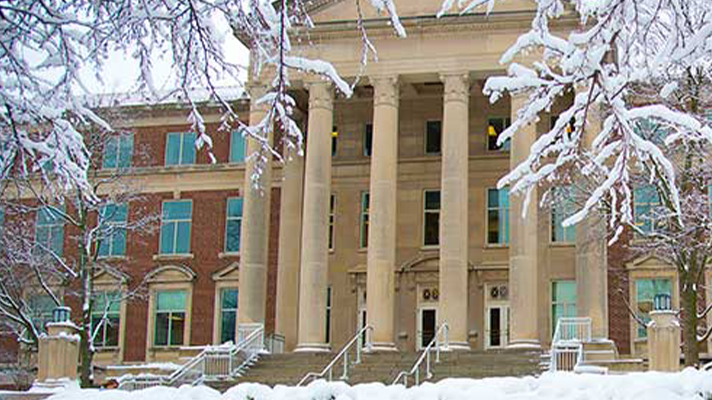
Policy
Guidance on the Use of AI in Teaching and Learning
The goal of this document is to provide reasonably thorough, but also accessible and brief, guidance to support the AI approaches and practices of instructors, as well as how they communicate their expectations to students. The guidelines represent evidence-based practices that align with Purdue’s values and policies. We encourage students and faculty together to innovate learning through AI, and we are eager to work with and support student innovation in AI.
Read More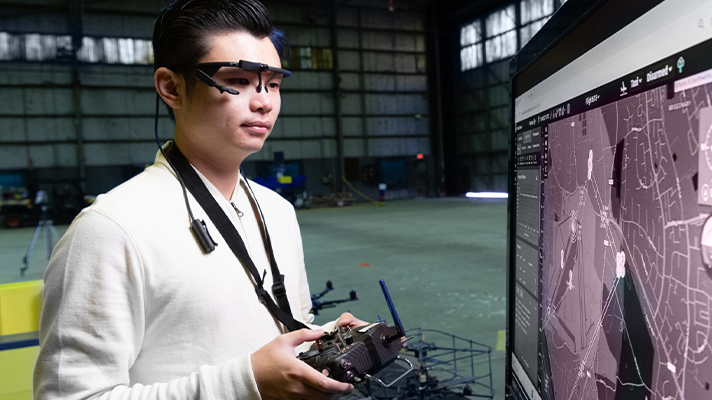
Research
Institute for Physical Artificial Intelligence
Purdue University is building a world-leading program in artificial intelligence (AI). Leveraging Purdue’s signature strengths in materials science, engineering, microelectronics, computer science, agriculture and life sciences, the Institute for Physical AI (IPAI) is committed to solving the world’s toughest challenges.
Read More
Education
Artificial Intelligence (College of Liberal Arts) Undergraduate Major
This major is for people who are science-curious and want to work in a space where innovative technology is developing yet don’t want to engineer the system or people who want to explore the human aspects of machine learning, artificial intelligence, and big data. It is also for the people building the technology and writing the code who recognize their obligation to use technology and data responsibly.
Read More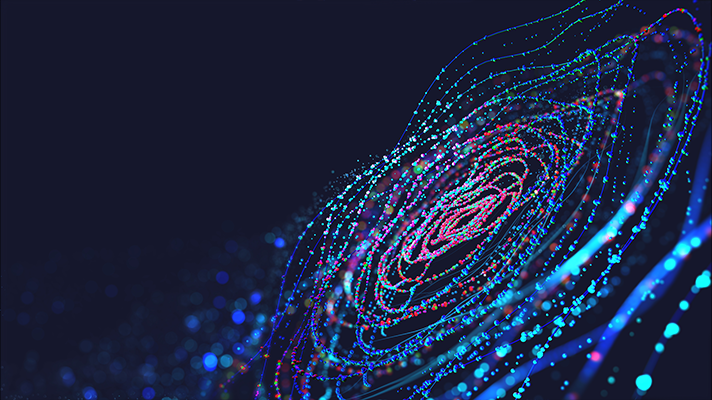
Education
Artificial Intelligence (College of Science) Undergraduate Major
Students in the AI major found within the College of Science will master the foundations and tools for building and understanding artificial intelligence systems which reason about data, correct themselves, and make decisions. Students will explore the link between cognitive psychology, neuroscience, and AI, and the ethics of AI, which are integral to a holistic understanding of AI.
Read More
Education
Online Master’s in AI
Purdue’s innovative Master of Science in Artificial Intelligence prepares professionals for success in today’s tech-focused job market – and it gives them the skills they need to meet the demands of the future. This program provides foundational AI knowledge applicable to many different career paths – from engineering to business, communication, and more.
Read More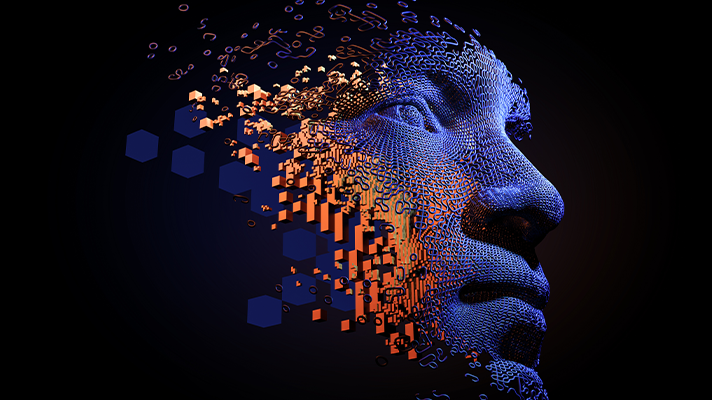
Education
Purdue Online AI Micro-credentials
Purdue’s AI Micro-credentials Program offers quick and convenient online courses that cover the fundamentals of artificial intelligence and its applications.
Read More